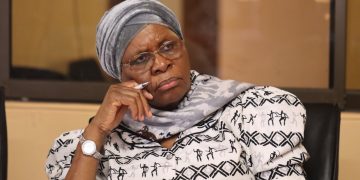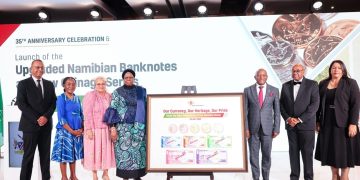
Namibia’s limited network of tax treaties and lack of clear transfer pricing rules are undermining efforts to attract long-term international investment, experts have warned.
Speaking at the Taking Stock Namibia 2025 forum hosted in Windhoek by Moore Infinity and Ellis & Partners, international tax expert Sven Helm said the country’s fiscal system urgently needs reform to align with international standards and support sustainable economic growth.
“Namibia’s current network of double taxation agreements remains narrow, with only a few modern treaties that meet OECD expectations. This undermines cross-border investment and legal certainty,” Helm said.
He noted that while the government has introduced incentives such as tax holidays, these often lack transparency and predictability, reducing their impact.
Helm also criticised the country’s transfer pricing framework, describing it as underdeveloped and lacking in detailed guidance and local expertise.
“While Namibia shows intent to align with international norms, inconsistent enforcement, limited legal certainty, and under-resourced tax administration continue to deter global firms. Investors seek predictability, not political discretion,” he said.
He recommended expanding Namibia’s double taxation treaty network, particularly with major investment source countries, and introducing advanced pricing agreements to give investors more certainty.
Other proposals included reducing withholding taxes on inbound financing and dividends, and strengthening anti-abuse provisions.
Echoing these concerns, economist Rowland Brown said rigid and outdated policy choices are holding the country back from realising its global potential.
“The world has far more to offer Namibia than we currently allow ourselves to access. This is not about dependency but about leveraging global capital, skills, and technology to transform our economy,” Brown said.
He criticised what he described as ideological policymaking that puts symbolic ownership ahead of real economic opportunity.
“Most Namibians want income security and dignified work, not symbolic shares in struggling firms. Policies that elevate ideological purity over economic opportunity end up hurting those with the least,” he said.
Brown pointed to Namibia’s high tax-to-GDP ratio – among the highest in the world – as a sign of misplaced priorities. Despite high tax revenue, unemployment remains above 50 percent.
“This reflects not a lack of income, but poor prioritisation and spending. Instead of enabling business, we burden it. The result is stagnation and lost opportunities,” he said.
According to Brown, Namibia has the core elements needed for success – institutions, infrastructure, resources, and a small, manageable population – but lacks the policy framework to unlock its potential. “If we make the right decisions now, we can turn potential into prosperity,” he added.
He warned that fixed investment in Namibia remains concentrated in mining, while other sectors are weighed down by a tax regime that is seen as uncompetitive. “Corporate tax, dividend tax, and the hidden costs of doing business continue to discourage investment,” Brown said.












